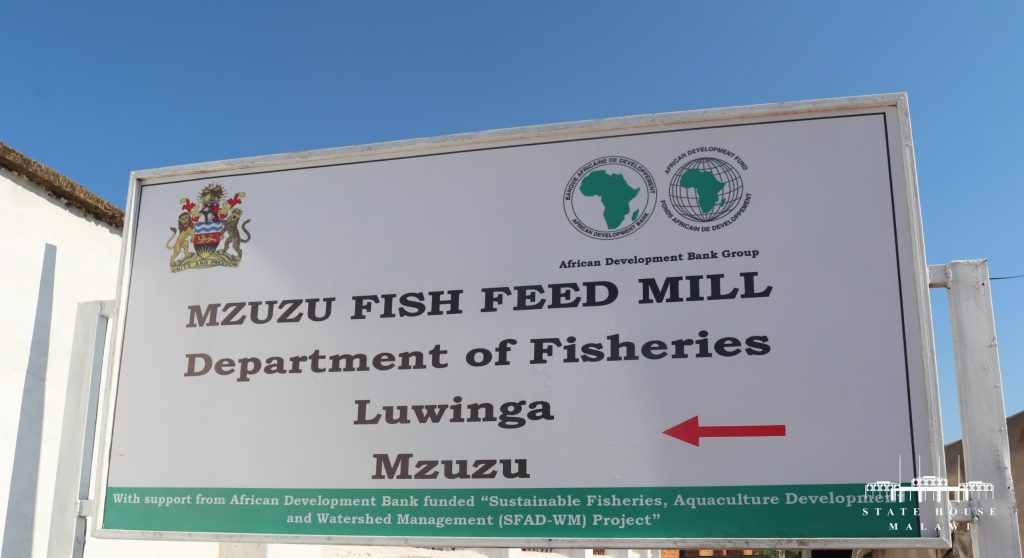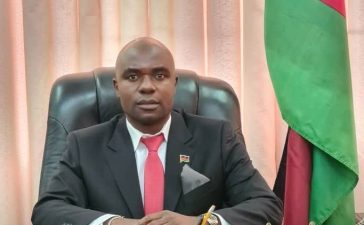
His Excellency Dr. Lazarus McCarthy Chakwera, the 6th President of the Republic of Malawi, officiated the opening of the Mzuzu Fish Feed Mill today, a significant initiative aimed at enhancing the country’s aquaculture industry. The event marked a pivotal step towards supporting local farmers by establishing industrial capabilities necessary for sustainable fishing practices.
In his speech, President Chakwera emphasized the importance of understanding the broader implications of mega farms beyond traditional crop farming. He acknowledged that many Malawians may not fully grasp the concept of mega farms, often associating them solely with agricultural land. However, he stressed that mega farms encompass diverse agricultural practices, including fish farming, which plays a critical role in food security and economic development.
“Agriculture is not just about plants; it also includes fish farming and other forms of cultivation. Therefore, the key point is that mega farms are not an end in themselves but a means to enhance the livelihoods of farmers by establishing industries like this fish feed mill,” Chakwera stated.
The Mzuzu Fish Feed Mill was established with support from the African Development Bank, reflecting the government’s commitment to boosting the fishing industry primarily in regions bordering Lake Malawi, including Karonga, Nkhatabay, Salima, and Mangochi.
President Chakwera highlighted the potential of the fishing sector to employ approximately 2 million people in these areas, and the crucial role it plays in the local and national economy.
“Without the right infrastructure and sufficient industrial capabilities, we may find ourselves facing shortages of the fish that we cherish,” he warned. The President underscored the need for careful adherence to environmental protection policies to ensure that future generations also benefit from Malawi’s rich aquatic resources.
Looking ahead, President Chakwera set ambitious targets for the aquaculture industry. “By the year 2030, I envision our fish farming sector producing 100,000 metric tonnes of high-quality fish, generating substantial foreign exchange for our nation,” he declared.
During the ceremony, Chakwera expressed gratitude to the African Development Bank and the Mega Farms Unit for their vital contributions in making the Fish Feed Mill a reality. He reiterated his administration’s commitment to sustainable development initiatives that directly empower communities and enhance the quality of life for all Malawians.
“The development initiatives such as this are not just infrastructural improvements; they represent tangible benefits for the people of Malawi. This fish feed mill will undoubtedly improve the livelihoods of many and contribute to the nation’s food security,” he concluded.
The Mzuzu Fish Feed Mill is expected to bolster local fish production while reducing dependency on imported fish feed. According to experts, the move is expected to promote sustainable fishing practices in Malawi, paving the way for economic growth and improved livelihoods in the fish farming zones.













